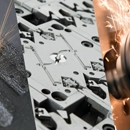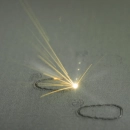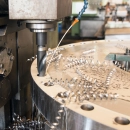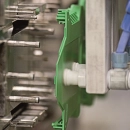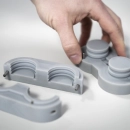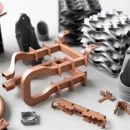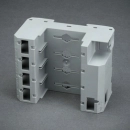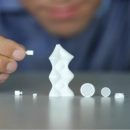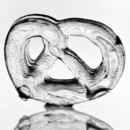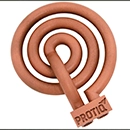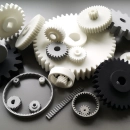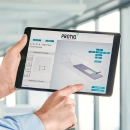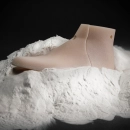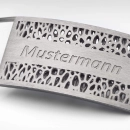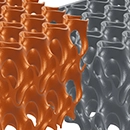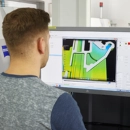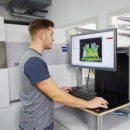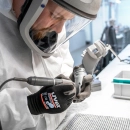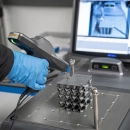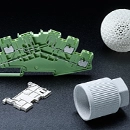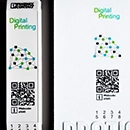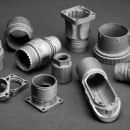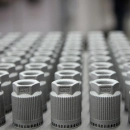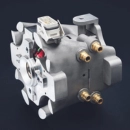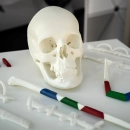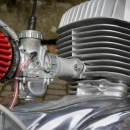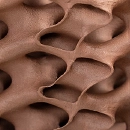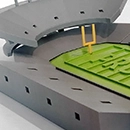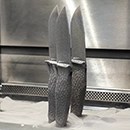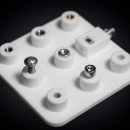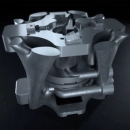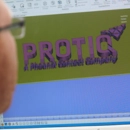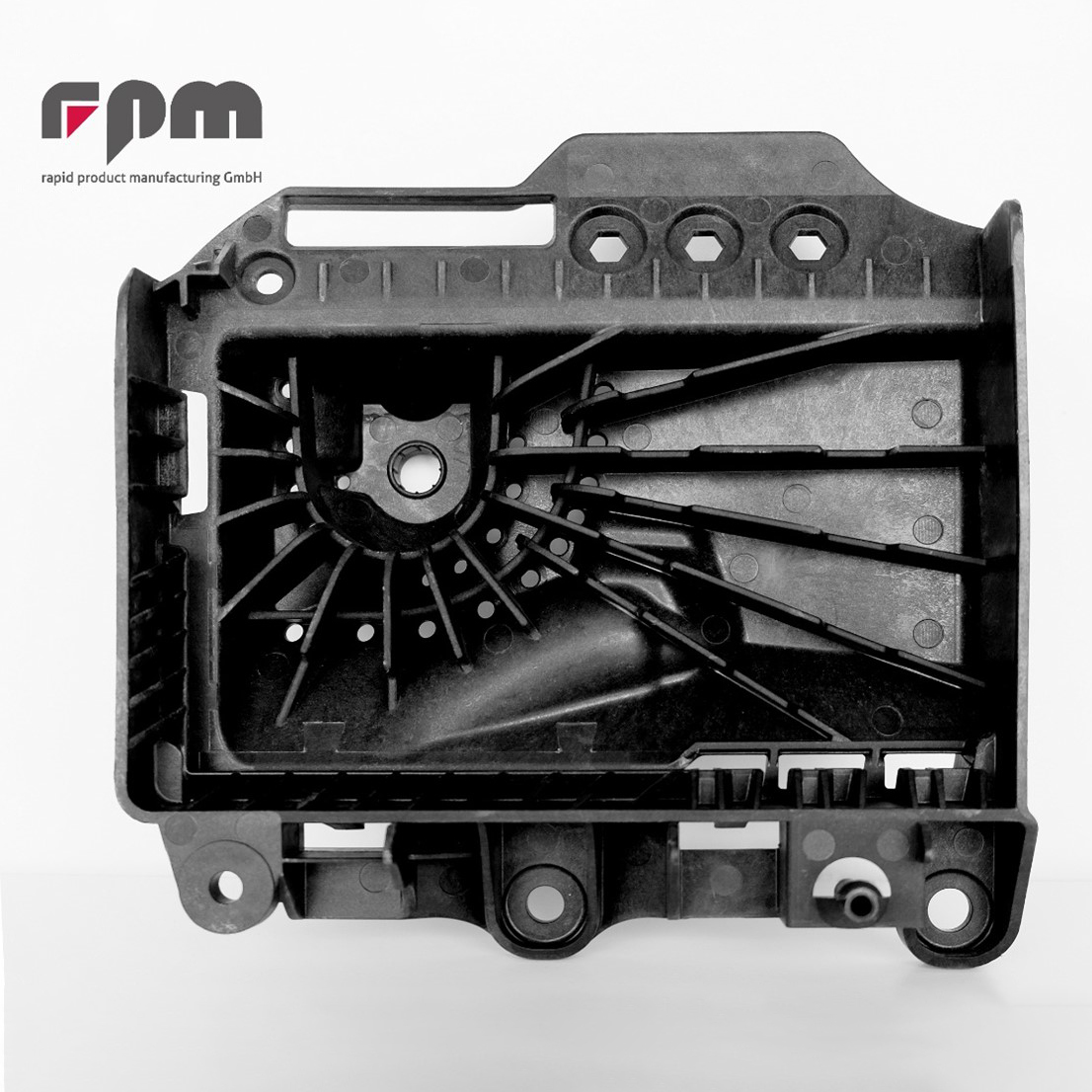New: PA6 and PA6GF30 Casting
The PROTIQ Marketplace adds PA6 and PA6GF30 Casting (NylonMold™) through partner rpm rapid product manufacturing GmbH
The PROTIQ Marketplace is proud to announce that rpm has adding their trademarked NylonMold™ process to the platform for automatic pricing and high-quality production. For industrial applications that require a true Polyamide 6 material comparable to injection moulded material, customers can access a production partner here in Germany with over 15 years of experience via the PROTIQ platform. Typical applications are heat-sensitive parts around engines or batteries for series, spare parts, aftermarket sales, or final functional prototyping before injection moulding tools are ordered. rpm also has in-house milling and pressure testing to ensure that applications under pressure also properly close with metal components. The NylonMold process is similar to the more familiar polyurethane casting (PU Moulding) but is produced outside of a vacuum chamber meaning so that there is no size limit, just a weight limit (4.5 kgs) and geometry requirement for walls that are at least 2 mm thick. rpm produced parts are in automobiles, machines and production systems in both the EU and US performing for years as functional parts.
Why was NylonMold developed?
The NylonMold™ process was developed by Dr. Jörg Gerken and his technical team at rpm rapid product manufacturing GmbH to meet the demand from their customers for functional series materials in low-volume. In 2002, rpm had spent five years 3D printing prototypes in SLS and had recently added polyurethane vacuum casting to their portfolio. For engine components in particular – PA6 was the material to match since it is such a common material in injection moulding and would therefore be needed to validate series parts in the field. Dr. Gerken is a materials scientist himself, so he could take that knowledge and develop a process for room-pressure PA6 casting. That production of large parts helped to put rpm on the map in the automotive industry for this parts category. The material even has an IMDS listing so that it can be officially used in vehicle production. Quite quickly they developed in small series production for specialty applications in racing and luxury vehicles which benefit substantially from the cost advantage at low volumes. Since roughly 12 years rpm has also been producing aftermarket parts for direct sale by OEMs and smaller resellers.
While not as fast as 3D printing, the first NylonMold parts can be delivered within 3 weeks on a standard production cycle. Once the master model and form have been validated with initial parts, then a typical delivery cycle would be 10-15 parts per week. But scaling to higher volumes is possible using multiple moulds or with an investment in aluminium tooling. For certain production applications rpm has ramped up to deliver in cycles of 100s of parts per month over the several years. Those applications often included overmoulding of specialty components or working with a LostCore™ in silicone or ceramic materials to achieve special geometries that would have been significantly more expensive to produce within injection moulding.
What types of parts are suited for NylonMold?
 The original application of NylonMold™ parts were primarily in and around the engine systems where the parts are exposed to either heat or chemicals in the motor, air, battery or cooling systems. Over the decades as rpm moved into industrial applications and machine building, they found increasingly good resonance in electronics applications from cable ducts and holders to battery bracket systems. As automation and electronics in various vehicles become more prevalent, the NylonMold™ process continues to develop more towards these types of applications.
The original application of NylonMold™ parts were primarily in and around the engine systems where the parts are exposed to either heat or chemicals in the motor, air, battery or cooling systems. Over the decades as rpm moved into industrial applications and machine building, they found increasingly good resonance in electronics applications from cable ducts and holders to battery bracket systems. As automation and electronics in various vehicles become more prevalent, the NylonMold™ process continues to develop more towards these types of applications.
Spare parts for aging vehicles for agricultural work, municipalities or buses are also an important application. Often these vehicles have such a long lifetime and small initial volume of vehicles that the companies have difficulty to source parts as series suppliers remove older tooling that is no longer functional or go out of business. Here the relatively low cost to create new tooling is a significant advantage to service these aging fleets.
The process continues to be an important part of the rpm production portfolio for applications with high heat or chemical resistance that require the PA6 base material. Over the years, rpm has added applications in industries like electronics for custom connector systems or cable routing boards near to the battery, for protective casings in energy or antenna systems, structural components in industrial production systems and maritime applications for the resistance to salt water abrasion. Since PA6 is widely used in industrial production and injection moulding, having access to the NylonMold™ material through silicon casting open an important extension of the production capacity.
rpm and PROTIQ are glad to announce the addition of NylonMold™ casting in either PA6 or PA6 GF30 provide access to this series-ready material to their customers.

More News
Are your 3D files ready?
Just upload your data. All files are automatically checked and optimized for printing.
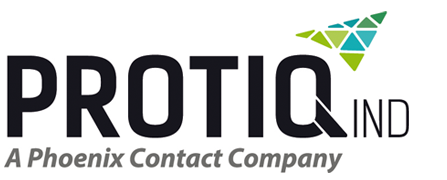


 Deutsch
Deutsch English
English Italiano
Italiano